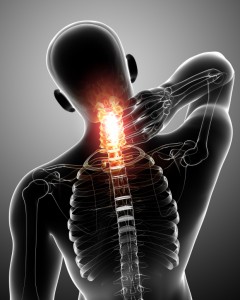
All drugs, including opioids, cause effects. Prescription and over-the-counter medications provide primarily therapeutic effects that help people recover from injuries and illnesses.
Like all drugs, opioids can also cause side effects that can produce unwanted results. Hyperalgesia is a potential side effect of all pain relievers, including opioids. Chronic use of opioid drugs, especially at high doses, increases the risk for side effects, including hyperalgesia.
What Causes Hyperalgesia?
Long-term use of opioids, including Fentanyl, Suboxone, heroin, and methadone, increases sensitivity to noxious stimuli. In other words, chronic opioid use makes the slightest bump, bruise, headache, or body pain seem much worse.
For over 25 years, people from all over the world have chosen Waismann Method as their opioid detox provider.
We know the challenges you face and the importance of creating a unique and personal experience for you right from the start.Call for Detox Options 1-800-423-2482
Hyperalgesia comes about as part of an allergic or inflammatory response, where immune cells interact with the peripheral nervous system. Medical scientists do not fully understand the actual mechanisms behind hyperalgesia in humans. Still, they believe the hypersensitivity occurs because of damage to the peripheral nervous system, which is those nerves and ganglia that serve the body outside of the brain and spinal cord.
Hyperalgesia usually develops in humans after chronic opioid use, but laboratory animals show signs of the condition after even a single high dose of opioids. This means it is possible that humans also become hypersensitive to pain after a short course of this class of drugs.
Hyperalgesia impairs the quality of life for those who suffer from this condition, especially for addicted or physically dependent on the drug responsible for the added pain. These individuals often feel trapped: they experience hyperalgesia when they take drugs but suffer intense withdrawals and cravings if they try to stop. No matter what the person does, he endures severe physical discomfort.
People who take opioids for a long time are usually confused when they develop pain for which the doctor can find no underlying cause. Frustrated and in pain, many who experience hyperalgesia request a more potent prescription from their physician, thinking they have merely grown tolerant to the effects of the drug. Unfortunately, stronger doses of the prescribed painkiller usually increase the pain of hyperalgesia.
Treatment for Hyperalgesia
Patients who suffer from hyperalgesia should discuss alternative pain control with a physician and discuss a safe detoxification method. People who have taken opioids for a few months or longer may be physically dependent on these drugs and therefore suffer uncomfortable withdrawal symptoms if they stop taking opioids suddenly. These individuals may benefit from Waismann Method Rapid Opiate Detox. This process can get the patient through the withdrawal safely and comfortably and without the unnecessary suffering usually involved with other drug detoxification methods. Contact a physician or opioid dependence professional if you think you or someone you love suffers from hyperalgesia.
References:
A comprehensive review of opioid-induced hyperalgesia





